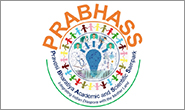The participating countries of the East Asia Summit comprising Brunei Darussalam, the Kingdom of Cambodia, Republic of Indonesia, Lao People's Democratic Republic, Malaysia, Republic of the Union of Myanmar, Republic of Philippines, Republic of Singapore, Thailand, Socialist Republic of Vietnam, Australia, People's Republic of China, Republic of India, Japan, Republic of Korea, New Zealand, the Russian Federation and the United States of America;
Desirous of establishing an international institution that will advance the concept of an Asian community by bringing together future generations in a common objective of making new discoveries of old relationships to realize a unity of minds;
Recalling that the Second East Asia Summit held on the 15th January, 2007 in the city of Cebu, Republic of Philippines, resolved to strengthen regional educational co-operation by tapping the East Asia Region's centres of excellence in education and for the revival of Nalanda University located in the state of Bihar in India to improve regional understanding and appreciation of one another's heritage and history;
Recalling also that the Fourth East Asia Summit held on the 25th October, 2009 in Hua Hin, Thailand, supported the establishment of Nalanda University and encouraged networking and collaboration between the proposed Nalanda University and existing centres of excellence in the participating countries of the East Asia Summit to build a community of learning where students, scholars, researchers and academicians can work together, symbolising the spirituality that unites all mankind.
Recognising that pursuant to the decisions taken at the Second East Asia Summit held on 15th January, 2007 and the Fourth East Asia Summit held on 25th October, 2009, the Government of India has established Nalanda University in the state of Bihar by an Act of Parliament entitled 'The Nalanda University Act, 2010 (No. 39 of 2010)', as an international institution for the pursuit of intellectual, philosophical and spiritual studies and to encourage networking and collaboration between Nalanda University and existing centres of excellence, including in the participating countries of the East Asia Summit;
Recognising also that Nalanda University will enable participating countries to build an academic community where students, scholars, researchers and academicians can collaborate in developing Nalanda University as an international centre of excellence;
Have decided as follows:
Article 1 Establishment of Nalanda University
1. An international institution known as Nalanda University (hereinafter referred to as the "University"), which will be a non-state, non-profit, self-governing international institution is established to achieve the purposes set forth in this Memorandum of Understanding and it will have full academic freedom for the attainment of its objectives.
2. The University will be located at Rajgir in Nalanda District in the state of Bihar in India (hereinafter referred to as the "Host Country").
3. The University will have full legal personality in the Host Country.
4. The University will have the power to confer degrees, diplomas and certificates.
Article 2 Objectives and Functions of Nalanda University
The objectives and functions of the University will include the following:
1. To establish an international institution of learning that will bring together the brightest and the most dedicated students from all countries irrespective of gender, caste, creed, disability, ethnicity or socio-economic background and to give them the means needed for the pursuit of intellectual, philosophical, historical and spiritual studies and thus achieve qualities of tolerance, accommodation and mutual understanding;
2. To build an Asian community of learning where the intellectual potential of every student can be developed to the fullest extent possible, and to create an Asian community by strengthening regional awareness;
3. To impart education towards capacity-building of Asian nations in the domain of philosophy, language, history and other areas of higher learning vital for improving the quality of their life and those of their brethren; and
4. To contribute to the promotion of regional peace and vision by bringing together future leaders who by relating to their past history can enhance their understanding of each other's perspectives.
Article 3 Funding
The funding for the establishment and operations of the University will be on a voluntary basis.
Article 4 Governance Structure
1. The University will be governed by a Governing Board. The President of India will be the Visitor of the University.
2. The members of the Governing Board will be drawn from amongst distinguished persons from India and abroad. The membership of the Governing Board will include five representatives from participating countries of the East Asia Summit to enhance their role in developing Nalanda University as an international institution of excellence.
3. The Governing Board will be responsible for the overall policies and directions of the University. The powers and functions of the Governing Board will be as per the Statutes of the University.
4. The University will be headed by a Vice-Chancellor appointed by the Governing Board. The appointment, tenure, powers and functions of the Vice-Chancellor will be as per the Statutes and Ordinances of the University.
Article 5 Fiscal Status
The University, its assets, income and other property, in the host country, will be:
a. Exempt from all direct taxes. However, the University will not claim exemption from taxes which are in fact no more than charges for public utility services;
b. Exempt from customs duties and prohibitions and restrictions on imports and exports in respect of articles imported or exported by the University for its official use, subject to the provisions of pertinent laws, rules and regulations, and provided that articles imported under such exemptions will be disposed of in accordance with local laws of the Host Country
c. Exempt from customs duties and prohibitions and restrictions on imports and exports in respect of its publications.
Article 6 Privileges and Immunities
The University, the Vice Chancellor and its academic staff, and where applicable their dependents and members of the family, will be accorded such privileges and immunities in the Host Country as provided in the Headquarters Agreement signed between Nalanda University and the Government of India.
Article 7 Visa and Work Permits
The Host Country will provide appropriate visas to the students, faculty and staff for travel to India to study or work in the University.
Article 8 Settlement of Disputes
Any issue concerning interpretation or implementation of this Memorandum of Understanding shall be settled through mutual consultations.
Article 9 Final Provisions
1. The Memorandum of Understanding will come into effect upon signature by four participating countries of the East Asia Summit.
2. After the coming into effect of this Memorandum of Understanding, any participating country of the East Asia Summit or any other State that subscribes to the object and purpose of the establishment of Nalanda University may, as appropriate, become a signatory to this Memorandum of Understanding.
Signed at Beijing, China on the 23rd day of October, 2013 in the English language.
| (Sujatha Singh) Foreign Secretary Ministry of External Affairs |
(Wei Wei) Ambassador Extraordinary and Plenipotentiary of the People’s Republic of China to India |





























